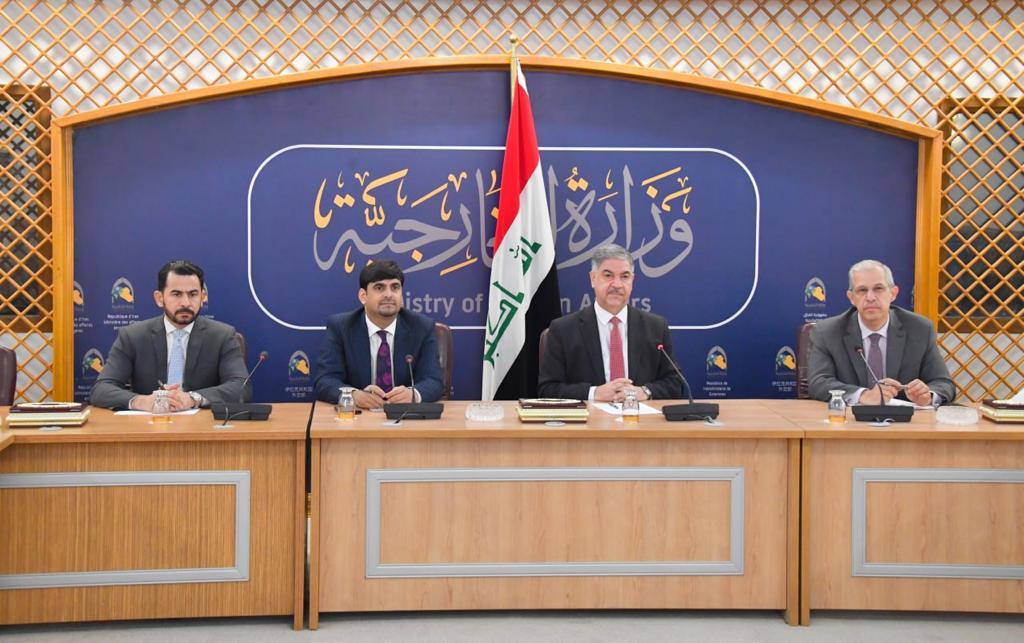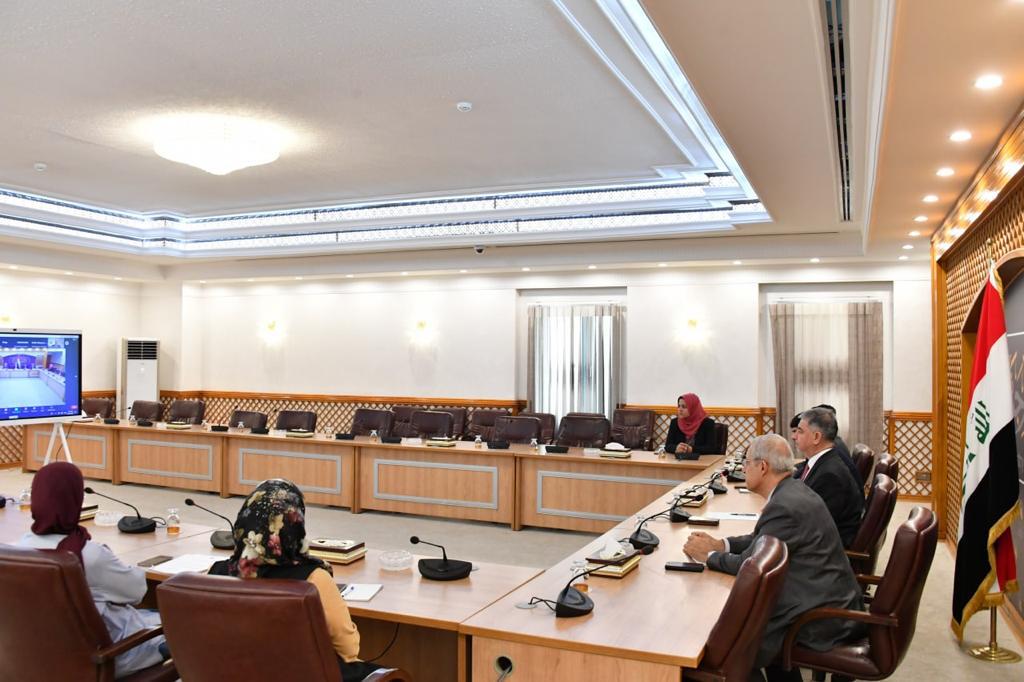Head of the Department of Human Rights Holds a Virtual Meeting with Ambassadors and Representatives of a Number of Missions of the European Union, the United Kingdom, Canada and Australia

On 31/10/2022, Dr Hisham Al-Alawi, Head of the Department of Human Rights, held a virtual meeting with ambassadors and representatives of a number of missions of the European Union, the United Kingdom, Canada and Australia accredited to the Republic of Iraq, with the presence of the Assistant Head of the department, Section managers and a number of Department staff, to discuss the draft resolution to abolish death penalty that the European Union intends to present in the meetings of the 77th session of the General Assembly of the United Nations currently being held in New York.
At the beginning of the meeting, the Ambassador of the European Union presented some numbers and statistics on the countries that have abolished or suspended the death penalty in recent years, and commended the decrease in the number of cases of the death penalty that have been carried out in Iraq during the past two years.
He also called on the Iraqi government to change its previous position and vote in favour of the afore-mentioned draft resolution, as a prelude to abolishing the death penalty.
On his part, Ambassador AL-Alawi affirmed the interest of the new democratic regime in Iraq in enhancing and protecting human rights, referring to the nature of crimes and the scale of widespread violations of rights under the former dictatorial regime, and the large number of innocent victims as a result of terrorist operations since 2003 and during the war against ISIS, pointing out that the death penalties are issued against criminals who have committed serious crimes, and they are automatically appealed and reviewed by the Federal Court of Appeal, while providing all procedural and legal guarantees for the convicts.
The Ambassador added that death penalties are based on the articles of the valid constitution and national laws, seeking justice to the victims and their families, noting that the circumstances of countries differ, and that the countries which face special challenges need to imposing the maximum penalties against the perpetrators of terrorism, genocide and crimes against humanity, in a way that contributes to maintaining community peace and security and preventing the recurrence of such heinous crimes against safe civilians.

